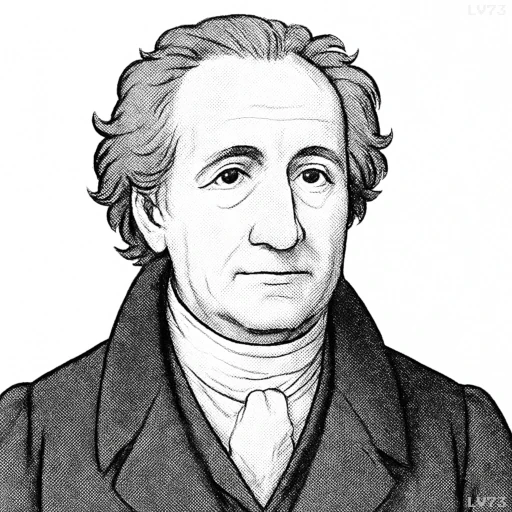“The hardest thing to see is what is in front of your eyes.”

- August 28, 1749 – March 22, 1832
- German
- Poet, playwright, novelist, philosopher, politician
table of contents
Quote
“The hardest thing to see is what is in front of your eyes.”
Explanation
Goethe points out the irony that often the most obvious or apparent truths are the hardest for us to recognize or comprehend. This could be due to our own biases, assumptions, or preconceptions that cloud our judgment, preventing us from seeing things as they truly are. We tend to overlook or dismiss what is immediately in front of us, perhaps because we are seeking more complex or abstract solutions, or we fail to see the significance of what is simple and near. This idea highlights the difficulty of being truly present and aware of the realities of our immediate surroundings.
Historically, this idea aligns with philosophical and psychological concepts about the nature of human perception. It has been explored in many traditions, from Socratic questioning to modern cognitive psychology, where individuals are often blind to the most obvious truths due to their own mental filters or psychological defense mechanisms. Goethe, in his exploration of human nature, recognized that we are not always capable of perceiving the world directly, often because of preconceived notions or internal barriers.
In modern contexts, this idea is relevant when considering how we often fail to see solutions or truths that are right in front of us. In personal growth, people may struggle to see the root cause of their issues, despite it being directly related to their own behavior or decisions. Similarly, in leadership or problem-solving, individuals or teams may overlook simple solutions in favor of more complex or abstract ones. This also applies to relationships, where the most obvious solutions or underlying issues are often ignored in favor of focusing on what seems more complicated or external.
Goethe’s words remind us that awareness and clarity are essential in understanding our surroundings and ourselves. The most challenging truths are often the ones closest to us, and it takes great insight and self-reflection to see what is right in front of our eyes.
Would you like to share your impressions or related stories about this quote in the comments section?



